 One would think, given they pretty much share the same title, that Pilot Part 1 and Pilot Part 2 would be rather similar, that the two parts would fit together as a functional whole. It’s true that both episodes were shot as part of the same production block. However, the two parts aired a week apart. Which was probably wise, for Pilot Part 2 is a very different beast compared to Pilot Part 1.
One would think, given they pretty much share the same title, that Pilot Part 1 and Pilot Part 2 would be rather similar, that the two parts would fit together as a functional whole. It’s true that both episodes were shot as part of the same production block. However, the two parts aired a week apart. Which was probably wise, for Pilot Part 2 is a very different beast compared to Pilot Part 1.
And one might wonder if the two parts had a different director, but they did not; JJ Abrams helmed both parts. Yet they have a very different feel from each other. Pilot Part 2 is rather visually distinct from its predecessor, as all of it is terribly bright; there’s an awful lot of sunlight. The first episode, on the other hand, had moments of “day becoming night,” scenes dominated by cloud cover and shadow, and even one shot at night. Pilot Part 2, on the other hand, is terribly bright; there’s an awful lot of sunlight. But then, Part 1 covers Day One on the Island, Night One, and the beginning of Day Two. All of Part 2 happens during Day Two.
While much of that could be attributed to the vagaries of the weather, we cannot say the same about the episodes’ structures. The structure of Part 1, as we noted in the previous essay, was split in two. The first half ran for twenty straight minutes, without commercial interruption. It had several very long scenes – Jack running out of the jungle and playing the hero while the remnants of the plane exploded. Then a long montage of the wreckage, and people milling about, accompanied by a morose musical score. A few short scenes serve to very briefly introduce a few of the other characters, but there’s some long conversations between Kate and Jack (as she stitches up his wound, and as they talk about the plane crash by a campfire) before the Monster brought that half to a climax. After Jack’s Flashback, the rest of the episode is almost entirely concerned with a trek to the cockpit to retrieve the airplane’s transceiver, and another attack by the monster. The whole episode is largely focused on Jack, secondarily on Kate and Charlie, and is very much in the mold of an action-adventure.
Pilot Part 2, on the other hand, consists of 27 vignettes that eventually feature all of the ensemble cast. The episode runs only 40 minutes. The final scene is five minutes long, and each of the two flashback scenes run about three minutes. As such, most scenes barely last a minute. This gives the episode a very different pace.
And yet it’s not nearly as propulsive as Pilot Part 1, for most of the vignettes are very languorous on their own. Sure, there are a few action sequences – both Flashbacks are on the crashing plane, and there’s the charge of the polar bear – but these are not the focus of the episode.…
Continue Reading
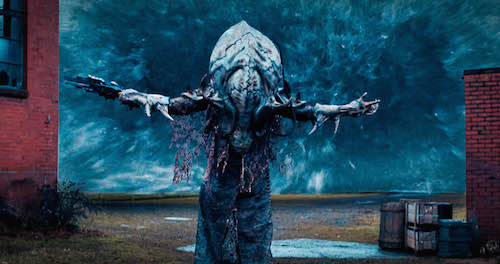 This week I’m joined by the wonderful Anna Wiggins, known to Eruditorum Press readers for her guest posts in the Super Nintendo Project and TARDIS Eruditorum, and known to Eruditorum Press writers as the person who makes the site actually work. Anyway, we talk Before the Flood, Toby Whithouse, disability representation, Whithouse’s frequent blind spots with regards to transgender and feminist issues, and many more reasons why we just don’t like Toby Whithouse all that much. Honest, it’s not a site editorial position or anything.
This week I’m joined by the wonderful Anna Wiggins, known to Eruditorum Press readers for her guest posts in the Super Nintendo Project and TARDIS Eruditorum, and known to Eruditorum Press writers as the person who makes the site actually work. Anyway, we talk Before the Flood, Toby Whithouse, disability representation, Whithouse’s frequent blind spots with regards to transgender and feminist issues, and many more reasons why we just don’t like Toby Whithouse all that much. Honest, it’s not a site editorial position or anything.
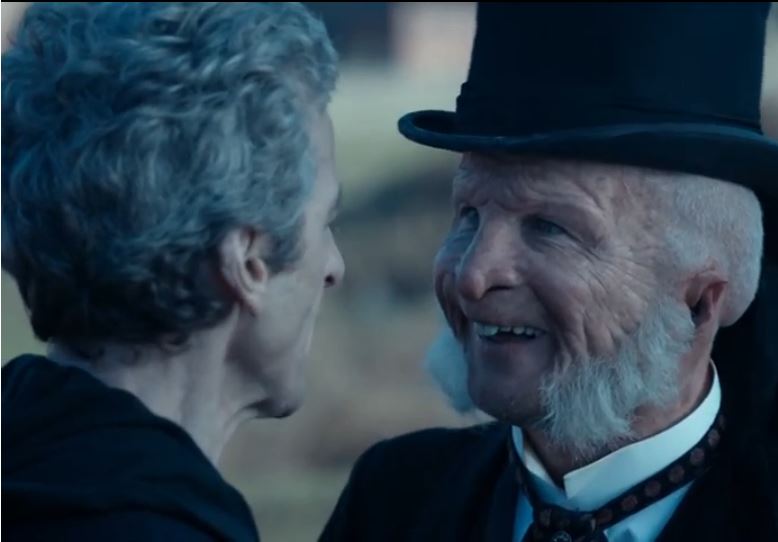 Happy Slaves
Happy Slaves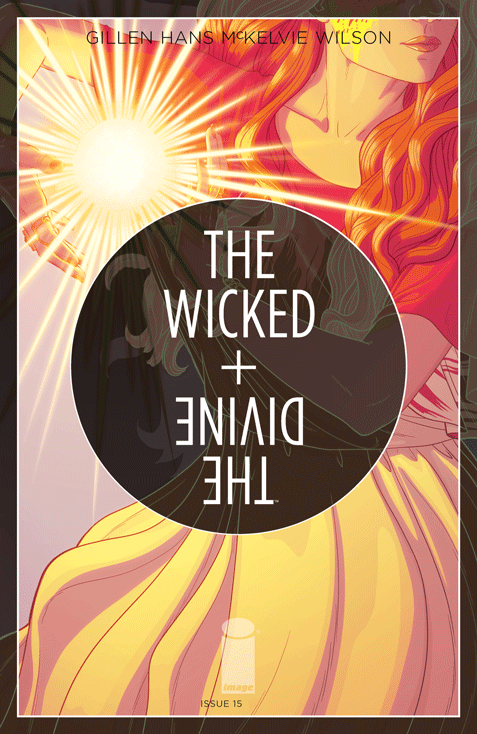 You know the drill.
You know the drill.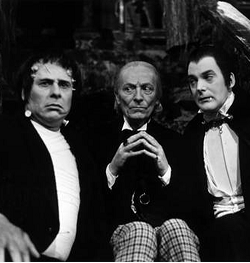 We’re pleased to announce this month’s second installment of Pex Lives, which I literally had no idea was even happening until it popped up in my inbox yesterday, and which I hope will be as pleasant a surprise for you as it was for me.
We’re pleased to announce this month’s second installment of Pex Lives, which I literally had no idea was even happening until it popped up in my inbox yesterday, and which I hope will be as pleasant a surprise for you as it was for me. 
 One would think, given they pretty much share the same title, that Pilot Part 1 and Pilot Part 2 would be rather similar, that the two parts would fit together as a functional whole. It’s true that both episodes were shot as part of the same production block. However, the two parts aired a week apart. Which was probably wise, for Pilot Part 2 is a very different beast compared to Pilot Part 1.
One would think, given they pretty much share the same title, that Pilot Part 1 and Pilot Part 2 would be rather similar, that the two parts would fit together as a functional whole. It’s true that both episodes were shot as part of the same production block. However, the two parts aired a week apart. Which was probably wise, for Pilot Part 2 is a very different beast compared to Pilot Part 1. Arguably the most Hegelian moment in all of video games, at least in an aesthetic sense, comes at the start of E.V.O. as the player’s avatar – at this particular moment in the game a fish – meets a jellyfish and is welcomed to the dialectical process of evolution. The jellyfish explains the three rules of evolution: fight for survival and for food, only move forward never back, and evolve and become strong. At which point the dialogue ends, the player bites the jellyfish in the head twice, and then eats the juicy roast his corpse converts into thus regaining some health and gaining experience. The process reiterates until eventually the player evolves into a human being, defeats the monstrous Bolbox, and reaches Eden where he is finally allowed to become Gaia’s consort and bring about civilization.
Arguably the most Hegelian moment in all of video games, at least in an aesthetic sense, comes at the start of E.V.O. as the player’s avatar – at this particular moment in the game a fish – meets a jellyfish and is welcomed to the dialectical process of evolution. The jellyfish explains the three rules of evolution: fight for survival and for food, only move forward never back, and evolve and become strong. At which point the dialogue ends, the player bites the jellyfish in the head twice, and then eats the juicy roast his corpse converts into thus regaining some health and gaining experience. The process reiterates until eventually the player evolves into a human being, defeats the monstrous Bolbox, and reaches Eden where he is finally allowed to become Gaia’s consort and bring about civilization.
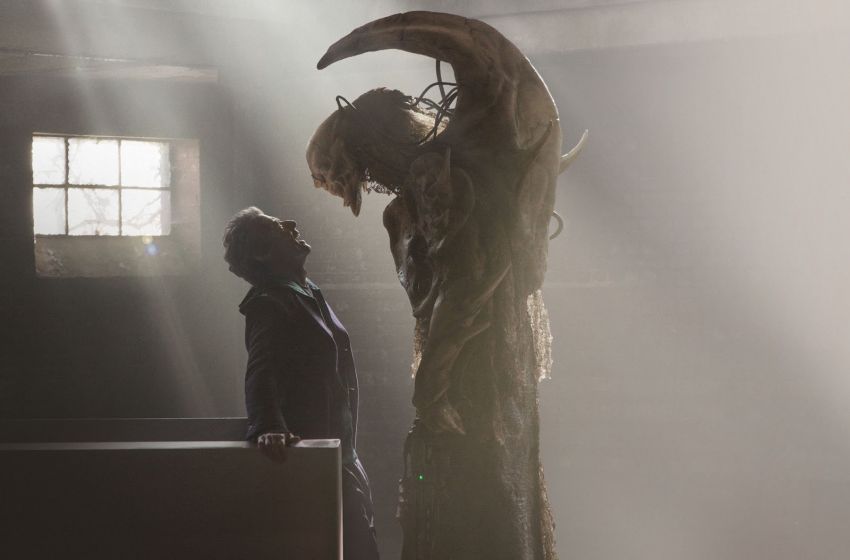 Well, that’s what I get for getting my hopes up about a Whithouse story I suppose. This was just crap. Unambitious, unimaginative, uninteresting crap made at best semi-competently. By some margin the worst episode of the Capaldi era, and saved from being Whithouse’s worst script only by the fact that
Well, that’s what I get for getting my hopes up about a Whithouse story I suppose. This was just crap. Unambitious, unimaginative, uninteresting crap made at best semi-competently. By some margin the worst episode of the Capaldi era, and saved from being Whithouse’s worst script only by the fact that 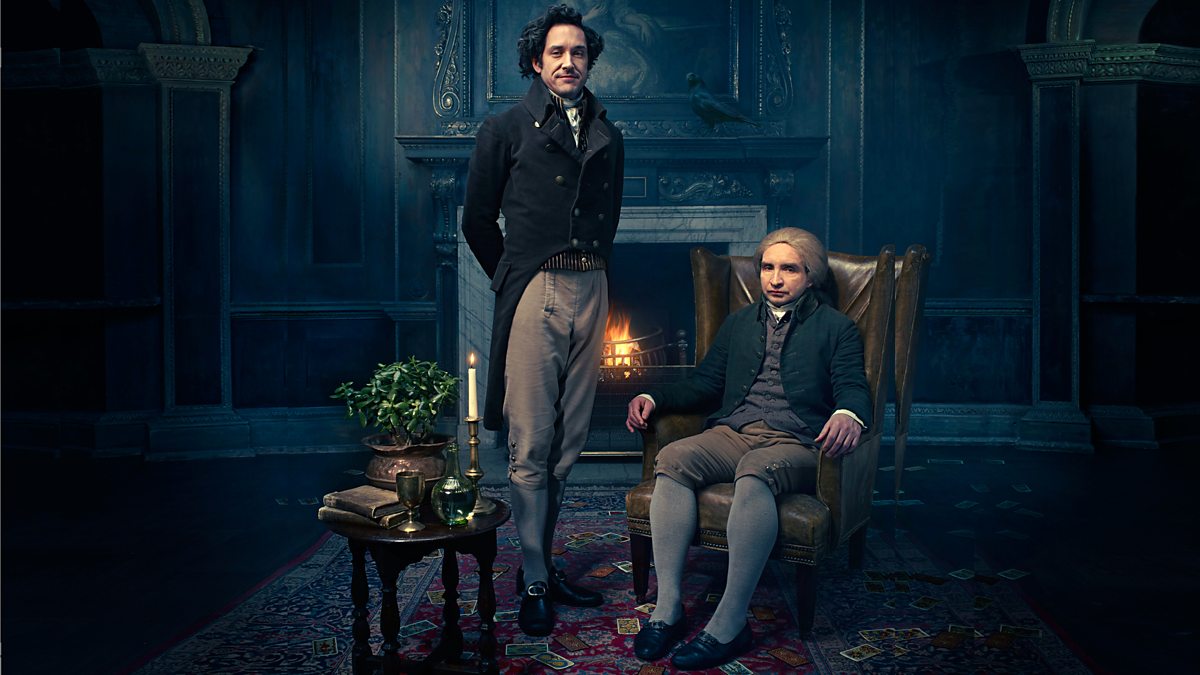 Or, as I really do think of the category, “all the stuff that’s probably going to lose to Star Wars,” a film I would be shocked to find on my ballot given my dislike for both the franchise and the director. Call me cynical.
Or, as I really do think of the category, “all the stuff that’s probably going to lose to Star Wars,” a film I would be shocked to find on my ballot given my dislike for both the franchise and the director. Call me cynical.